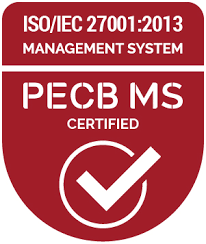ISO/IEC 27001 is an international standard that specifies the requirements for establishing, implementing, maintaining, and continually improving an Information Security Management System (ISMS). An ISMS is a systematic approach to managing sensitive information within an organization, ensuring its confidentiality, integrity, and availability while managing associated risks.
Here are the key aspects and requirements of ISO/IEC 27001:
- Scope and Context: The standard requires organizations to define the scope of their ISMS, including the boundaries, applicability, and exclusions. It also emphasizes understanding the organization's context, internal and external issues, and the needs and expectations of interested parties.
- Leadership and Commitment: Top management plays a crucial role in leading and supporting the implementation of the ISMS. This involves establishing an information security policy, defining roles and responsibilities, providing necessary resources, and promoting a culture of information security throughout the organization.
- Risk Assessment and Treatment: ISO/IEC 27001 requires organizations to conduct a systematic risk assessment to identify and assess the risks associated with the confidentiality, integrity, and availability of information. Based on the risk assessment, organizations must implement appropriate controls to mitigate or manage identified risks.
- Support and Resources: Adequate resources, including human resources, infrastructure, and competencies, should be allocated to support the implementation and maintenance of the ISMS. The standard emphasizes the need for competence, awareness, communication, and documented information to support information security activities.
- Operation and Control: ISO/IEC 27001 outlines specific controls that organizations should consider implementing to address various aspects of information security. These controls cover areas such as access control, asset management, cryptography, physical and environmental security, incident management, business continuity, and supplier relationships.
- Performance Evaluation: Monitoring, measurement, analysis, and evaluation of the ISMS are essential to ensure its effectiveness and continual improvement. Organizations should establish metrics, conduct internal audits, and review the performance of the ISMS to identify opportunities for improvement.
- Continual Improvement: ISO/IEC 27001 emphasizes the importance of continually improving the effectiveness of the ISMS. This involves setting objectives, conducting management reviews, taking corrective actions, and learning from incidents and non-conformities.
By implementing ISO/IEC 27001, organizations can demonstrate their commitment to information security, protect sensitive information, comply with legal and regulatory requirements, and gain the trust of customers and stakeholders. It provides a systematic and comprehensive framework for managing information security risks and establishing a culture of security within the organization.

